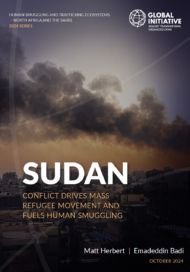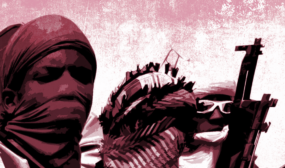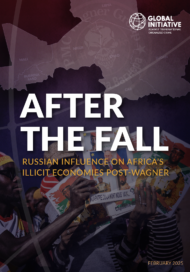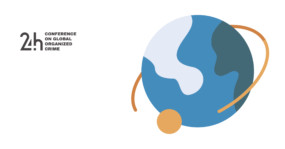Posted on 21 Jul 2024
For the decade between 2012 and 2022, the central Sahel was the focus of attention from Western partners, spurred by the Tuareg rebellion and spread of violent extremist organizations in Mali, followed by Burkina Faso and Niger. More recently, however, the power gained by military authorities through coups in all three countries has deliberately alienated Western partners, at the same time as major international conflicts such as the wars in Ukraine and Gaza, combined with growing polarization and aggression on the world stage, have diverted crucial attention.
Worryingly, as Western engagement with the Sahelian states has become more fraught and appetite for commitment has diminished, violent extremist groups have made gains in the region. The Group for the Support of Islam and Muslims (Jama’at Nasr al-Islam wal Muslimin, JNIM) and the Islamic State Sahel Province (IS Sahel) have expanded across swathes of the central Sahel at the same time as the West’s waning focus has dangerously weakened information flows out of the region.
Instead, the attention that remains on West Africa is increasingly focused on the northern areas of neighbouring littoral states: Benin, Togo, Côte d’Ivoire and Ghana. While these areas have also seen increasing numbers of attacks by JNIM and IS Sahel, concentrating attention here at the expense of the central Sahel overlooks how closely the two areas are linked. The illicit ecosystems that feed regional conflicts and enable the territorial expansion of armed groups have been spreading across borders, binding together littoral and Sahelian states. Allowing the central Sahel to become an information black hole therefore means tackling threats to the littoral states blindly.
International eyes turn elsewhere
After 2012, following the Tuareg rebellion and the expansion of violent extremist organizations, a plethora of regional and international organizations deployed to Mali or intensified their programming in the country. These included a UN peacekeeping mission (MINUSMA), a French-led counter-terrorism mission (Barkhane), large-scale EU training missions (EUTM and EUCAP Sahel), several dozen international NGOs and thousands of humanitarian and development personnel. Burkina Faso also received increased attention from 2018 onwards as JNIM, and to a lesser extent, IS Sahel, infiltrated more of the country.
Since 2020, however, the central Sahel has experienced dramatic political and economic shifts. Military takeovers in Mali, Burkina Faso and Niger have led to regional fragmentation, and growing isolation from Western partners. The decision made by these three countries to withdraw from the Economic Community of West African States, announced in January 2024, has accelerated the rift with many neighbouring nations. Against this backdrop of rapid political change and mounting instability, military regimes have cracked down on human rights organizations and journalists, suspending and banning many news agencies, and imprisoning individuals.
These national political changes have influenced the West’s ability to keep attention on the central Sahel, at the same time as major donors, such as the UK, Germany and Sweden, have significantly reduced their aid budgets to countries in the Global South more broadly. Growing hostility among central Sahelian states towards their traditional partners – resulting in the expulsion of French troops from all three countries, the termination of the UN peacekeeping mission in Mali and the US military presence in Niger – has coincided with closer relations with Russia, including the regional deployment of military personnel from the Wagner Group, now known as the Africa Corps.
Western partners are struggling to navigate this complex environment and operate in a new era of multipolar diplomacy, in which power is diffused among several global powers vying for influence. As one European diplomat noted: ‘It’s true that we’re leaving the Sahel behind. Not because we want to, but because we struggle to find ways forward in the current environment. Resources are better spent in countries further south [Benin, Togo, Ghana and Côte d’Ivoire], where the authorities still control most of their territory and are willing to work with us.’
Criminal ecosystems and conflict dynamics
This declining monitoring of Sahelian dynamics hampers understanding of extremist groups’ strategies, including the role of illicit economies. Armed group territorial expansion is underpinned by strategic involvement in illicit economies, which are central to generating revenue, operational resources and legitimacy among local communities. JNIM and IS Sahel have infiltrated many of the supply chains and economies on which Sahelian communities are most dependent, particularly livestock and gold.
Crucially, these economies are transnational: cattle stolen in Mali and Burkina Faso are sold in markets in Ghana and Côte d’Ivoire, while gold from artisanal mines in Côte d’Ivoire and Ghana is sold in Bamako or Ouagadougou to take advantage of price differentials. Mercury and cyanide, used in amalgamation processes in artisanal gold mines in coastal countries, are trafficked mainly from Burkina Faso. The northern areas of the coastal countries are also key smuggling corridors, including for fuel and motorbikes, both of which are critical to armed groups.
JNIM and IS Sahel are also leveraging what they have learned in the Sahel to expand their footprint. JNIM deploys senior commanders from northern and central Mali to new areas (including coastal states) to ensure that it maintains strong central control while enabling a degree of autonomy that allows new cells to operate efficiently. JNIM’s governance strategy is thus shaped and tested in the Sahel before being trickled down to more junior units, including those moving into new territories, through the deployment of senior commanders. The dynamics of crime and conflict in the coastal states cannot therefore be separated from those in the central Sahel. And understanding this has made it possible, for example, to identify kidnapping patterns in northern Benin by tracking similar dynamics in Burkina Faso.
Limited windows for engagement
Moreover, identifying opportunities for engagement – which tend to open and close quickly – requires ongoing monitoring, analysis and relationship building, making granular knowledge more important than ever. Such data underpins effective engagement, including support for disrupting criminal ecosystems that sustain conflict actors. Weakening information flows thus undermine the ability to make evidence-based decisions in the Sahel, while eroding safeguards against the growing threat of misinformation. But it is also a challenge for designing engagements in the north of the coastal countries, where Western partners are redirecting their resources.
While recognizing the challenges, this article joins other organizations in encouraging continued engagement by Western partners in the Sahel and, crucially, acceptance of multipolar diplomacy. Of course, this depends on the willingness of Sahelian states to engage, but many stakeholders within key institutions, from the military to law enforcement and development, remain open to Western support.
Some level of engagement in the Sahel must remain a priority. This should include ongoing monitoring and data analysis, without which diplomatic engagement and efforts to support conflict- and crime-sensitive interventions are doomed to failure. Not only is peace in the Sahel an important goal in itself, but the stability of the littoral states cannot be maintained without continued engagement in the central Sahel, including ongoing monitoring of the illicit economies that occur across the wider region.



